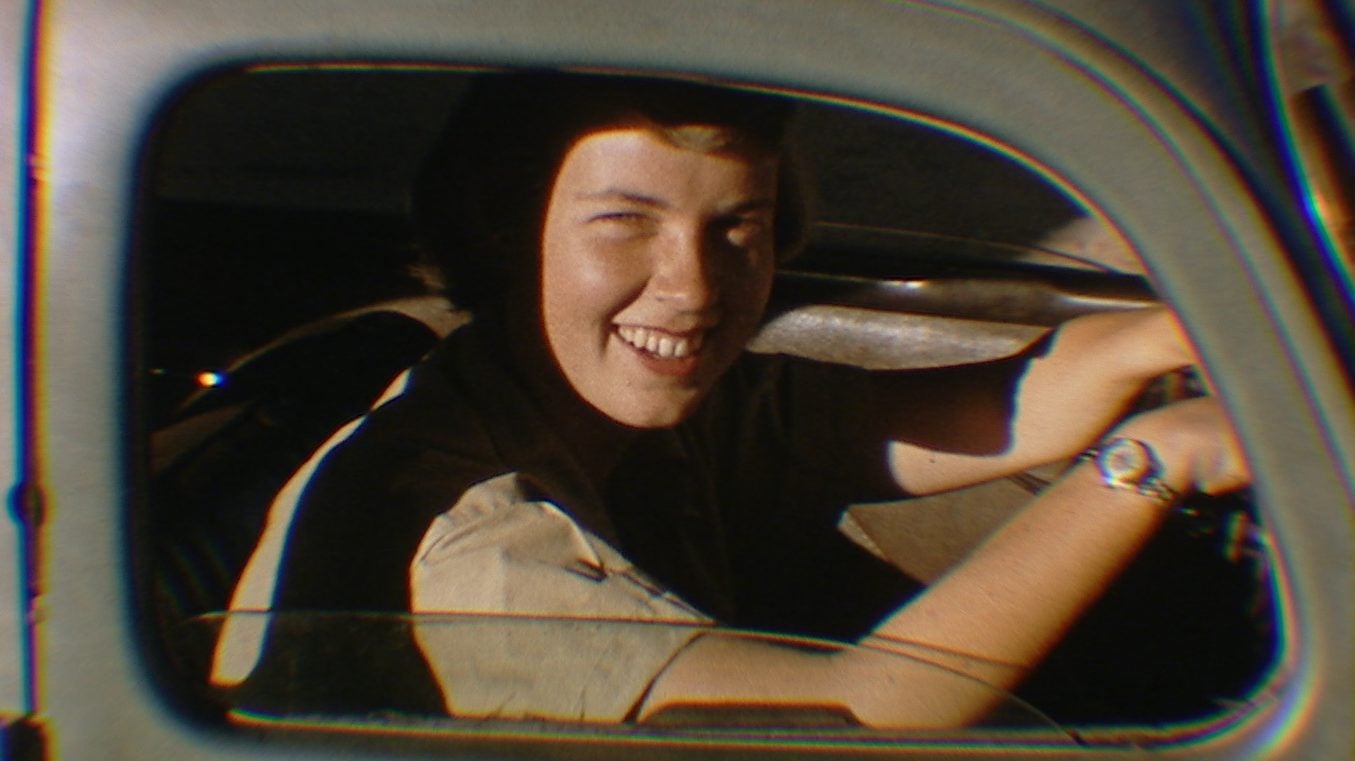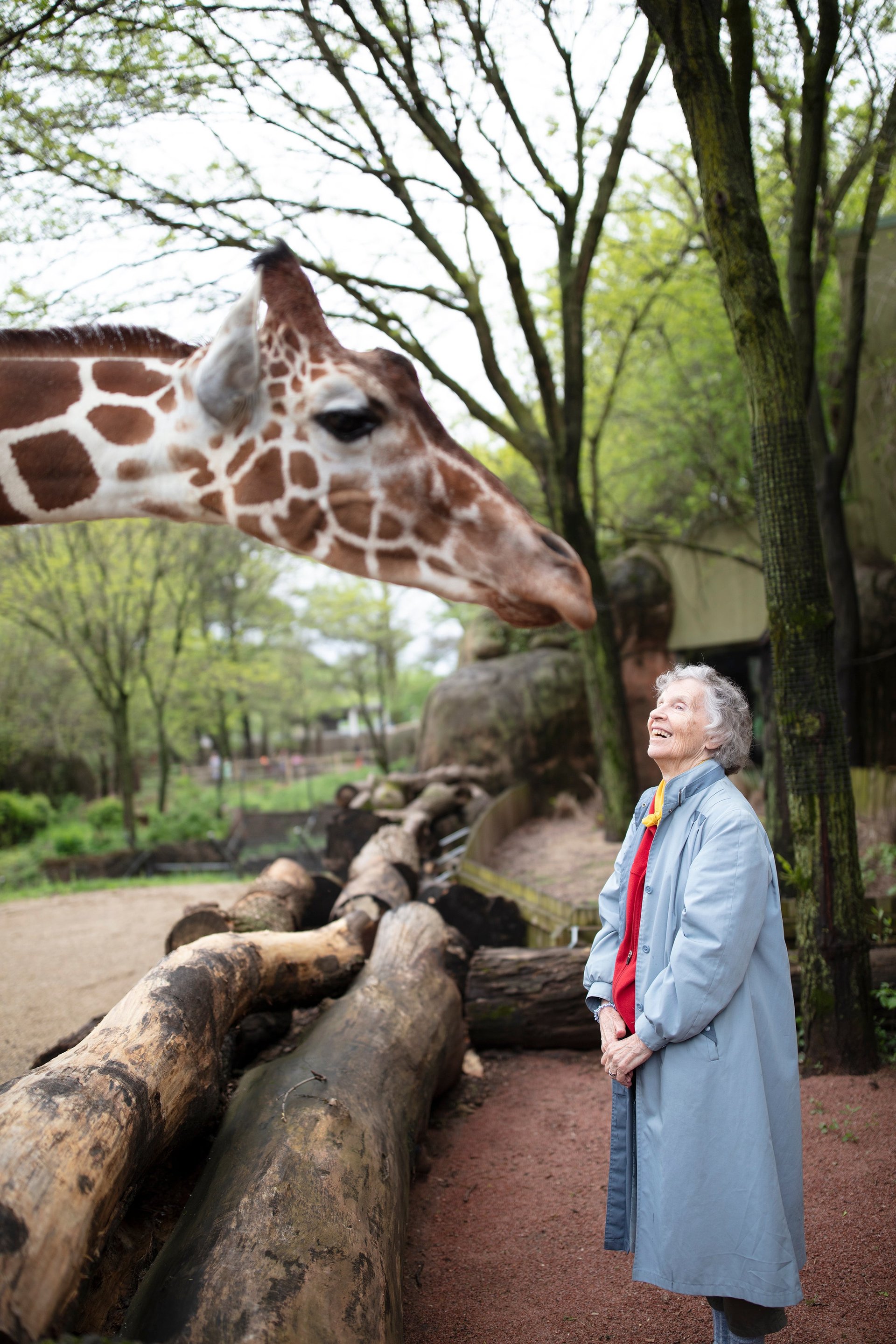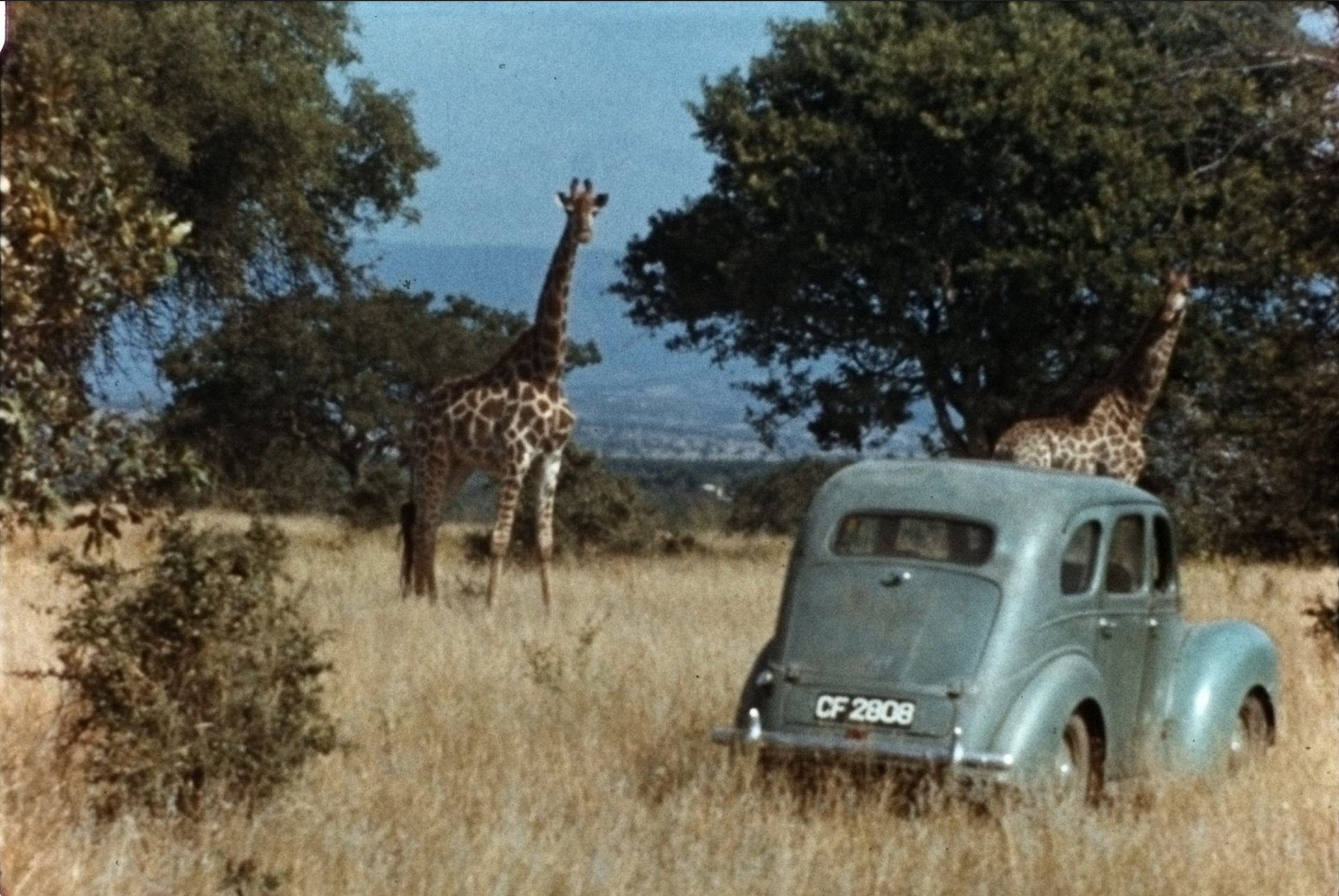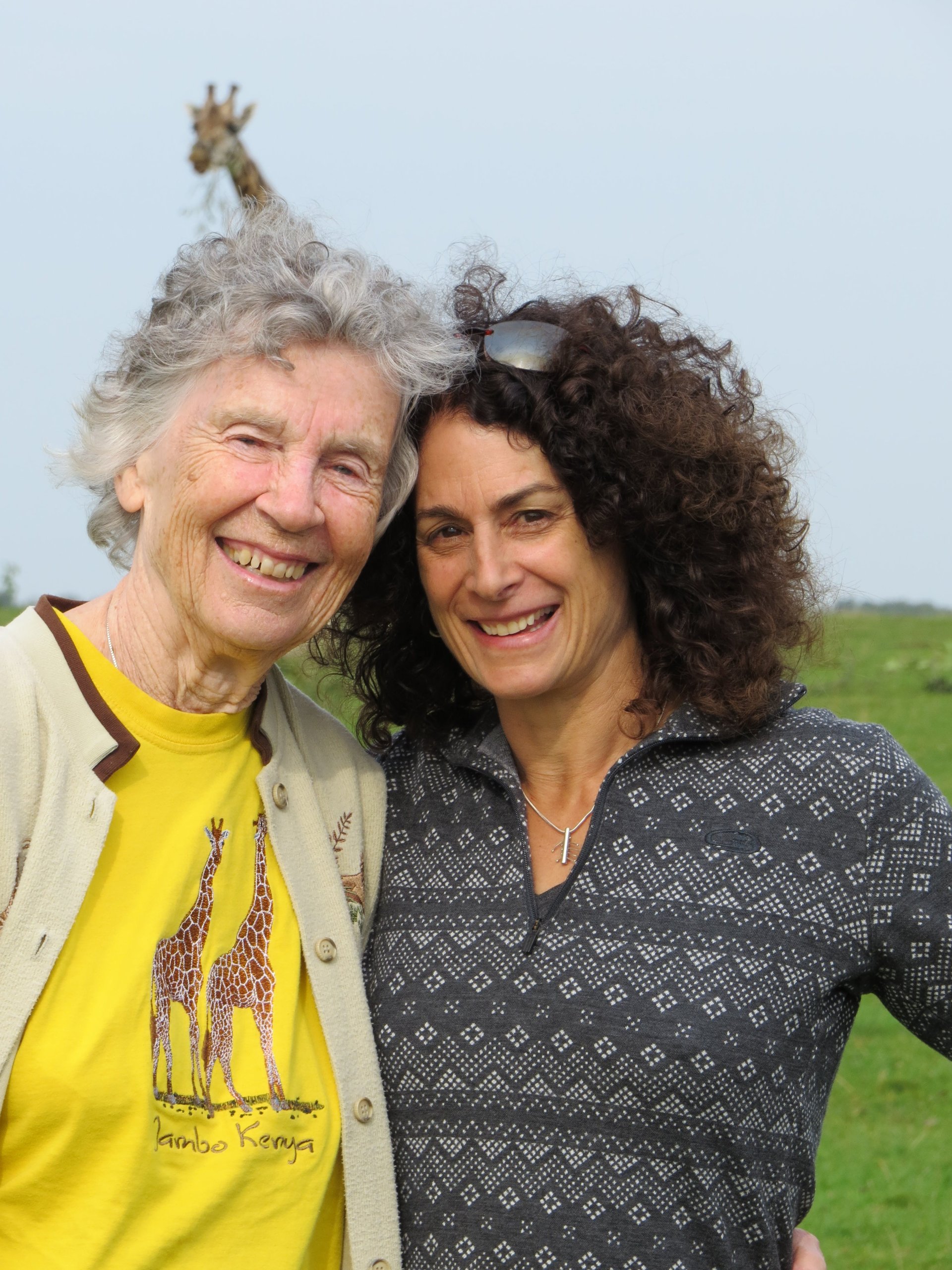“Tenure Not Granted”: A new film honors a woman science forgot
A new documentary about a woman who broke new ground in animal behavior studies is filled with awe-inspiring scenes of its protagonist and vintage footage of the otherworldly, long-lashed gentle giants that are her subjects. It’s a beautiful film, but the most poignant moments, at least the day I saw it, happened offscreen, among audience members profoundly moved by a too-familiar story of sexism denying a woman her full potential.


A new documentary about a woman who broke new ground in animal behavior studies is filled with awe-inspiring scenes of its protagonist and vintage footage of the otherworldly, long-lashed gentle giants that are her subjects. It’s a beautiful film, but the most poignant moments, at least the day I saw it, happened offscreen, among audience members profoundly moved by a too-familiar story of sexism denying a woman her full potential.
The film is The Woman Who Loves Giraffes, written and directed by Toronto filmmaker Alison Reid. It traces the history of Anne Innis Dagg, who went to Africa in 1956 to study giraffes and became the first trained scientist to study wild animals on the continent. (Jane Goodall arrived in Tanzania in 1960.) Later, Innis Dagg went on to publish dozens of scholarly papers. In 1976 she co-authored The Giraffe, the bible for giraffologists for years.
In the documentary, we are only briefly introduced to the present-day Innis Dagg before stepping back to get to know young Anne Innis, who was born in Toronto in 1933 to an upper middle-class home and two intellectual parents. Her father, Harold Innis, was a celebrated Canadian communications theorist. Her mother, Mary Quayle Innis, was an economic historian and literary writer who became dean of women at University of Toronto.
Anne, we quickly learn, is inquisitive and single-minded. At the age of three, on a trip to the Brookfield Zoo outside Chicago, she sees giraffes for the first time and falls in love with them. Growing up, she’d ask her parents for books about giraffes, which they couldn’t supply because none existed. “When I got to university, I thought well, at last now, we’ll maybe learn about giraffe, but we didn’t learn about giraffe there either, because actually there was very little known about them,” she says in the film. (Innis Dagg uses the singular form as the plural for giraffe.)
At age 23, after completing an undergraduate degree in biology (a rare choice for women at the time) she left home to study giraffes in the wild, to learn firsthand what had been missing from her classrooms. She opposed killing and dissecting animals repeatedly in the name of science. Instead, she would observe giraffes to see how they spend their days, what they eat, how they mate, and how they deal with conflict.
Only one other such formal and prolonged study of a single species’ behavior had ever been completed, on red deer in Scotland—meaning Innis Dagg wasn’t just first to study animals in the wild in Africa; she was the second person to ever undertake this kind of project anywhere in the world. She had to figure out how to do it all, without any books or more senior researchers to guide her.
The potential dangers that might await a single woman traveling alone—in a time before constant connectivity was an option—would not deter her. Neither would social customs that insisted on women marrying and becoming wives and mothers as soon as the opportunity presented itself.
“I was thinking I was a person”
When she told her then-boyfriend Ian Dagg that she was heading to Africa for a year, he said, “Why don’t we get married instead?” Innis Dagg recalls in the film. The young woman asked her mother for advice. Incredibly, for the era, her mother responded: “You’ve always wanted to see giraffe. If you got married now, you probably never would.”
Then, to find a home station during her scientific pursuit, Innis Dagg began writing to the wildlife departments in the 13 countries where she knew giraffes roamed. Louis Leakey, the paleoanthropologist who later hired Jane Goodall, was among the many who turned her down, though he sent her three letters and was gracious in his refusal. Finally, one correspondent dropped a clue about why Innis Dagg was striking out: that it wouldn’t do “for a young lady to be alone” in the field.
Innis Dagg turned to a time-tested trick to evade gender bias, writing her next batch of letters as A. Innis. “I could be an Andrew or some other ‘A’,” she says in the film. Naturally, it worked. A citrus farmer named Alexander Matthew invited her to his massive ranch near Kruger National Park in South Africa, promising her quarters for single men that were “virtually free of malaria.” Only after starting out on her journey did Innis Dagg disclose to Matthew that she was a woman. Mr. Matthew, as he becomes known in the documentary, wrote back to rescind his invitation, explaining that he naturally assumed the Canadian student inquiring was male. “An offer was made on this misunderstanding,” he writes. Their correspondence continues—many of the original letters and telegrams are read in the documentary—and Innis Dagg eventually won him over.

To reach Matthew’s Fleur de Lys ranch, the intrepid scientist had to drive alone for days, heading north from Rhodes University, where she had briefly stayed. She bought a 1950 green Ford Prefect and named it Camelo, from Camelopardalis, the Greek word for giraffes, which combines “camel” and “leopard.” On the last night of that journey, about five miles from the safety of Matthew’s home, Camelo quit and wouldn’t start again, leaving its driver stranded with two choices: stay in the car and spend the night worrying for her safety, or face her fear and push on, in a darkness possibly shrouding lions, leopards, and other predators. Without so much as a flashlight, she decided on the second option. (Fortunately, an hour later, a worker from the ranch drove up and she flagged him down, ending the terrifying hike.)
For the next year, she spent nine hours a day watching giraffes, making notes every five minutes of how they occupied themselves and collecting the leaves of trees they ate from when they had sauntered off, so that their food could be identified. Matthew lent her his new 16mm camera, with color film, and she began filming the animals, at one point capturing two males sparring, walloping each other with their long necks—another world first.

When one of the estate’s giraffes was killed by a park warden and chopped up by locals for meat, Innis Dagg made the most of the massacre by carting off a few of the animal’s organs, unspooling the intestines so she could measure their length (256 feet). One day she watched one male giraffe mount another, so she noted it and later wrote about the behavior in a journal, becoming the first scientist to report on a phenomenon now known to be common among many species. (In 1984, she wrote the first comprehensive survey of homosexual behavior in mammals.)
At one point in the documentary, Innis Dagg is asked how other people in South Africa reacted to her being there alone to do her work. She admits they probably found it strange, but she didn’t let the funny looks stop her. “Oh, no. Because I was thinking I was a person,” Innis Dagg explains, laughing. “So I guess I’m thankful to my mother for allowing me to be a person and not a woman.”
Blocked by the “old boys network”
Dagg’s commitment to egalitarianism is also explored in brief scenes about the racial politics she encountered in South Africa during its early years under apartheid—a topic the film only touches on, but one that’s furthered discussed in the 2011 CBC radio documentary that inspired the film. (It turns out Matthew, who is lovely to Anne, also spouts grotesquely racist views during their evening conversations.)
After returning to Ontario, Dagg finished a masters degree in genetics and got her PhD in animal behavior at University of Waterloo, where her husband, the late Ian Dagg, was a physics professor. (The couple had three children together.) Eventually, she found a job teaching classes in the zoology department at the University of Guelph, but this is where her budding career got diverted.
After four years of teaching at the school, and having built up an impressive CV listing papers published in prestigious journals around the world, Innis Dagg applied for a tenured position, believing her reputation stood on its own. She was popular with students and had field experience that more senior, tenured male professors lacked.
And yet.
Innis Dagg, who mostly comes across in the film as feisty and cheerful, is visibly crushed as she talks about her application for tenure getting rejected, a decision that would mean leaving the school the next year. Her voice cracks. “I remember crying all the way home,” she says. “It just meant that was the end of everything that I hoped for.”
Sandy Middleton, a retired professor in the zoology department at the school and one of the few former male colleagues who had befriended Innis Dagg (most of the male professors didn’t speak to the women who were faculty, she says) explains that Innis Dagg ran into the faculty’s old boys network, where four or five men held undue influence. That collision demolished what would have been a brilliant career.
Innis Dagg’s still-fresh sadness in these scenes was deeply moving to viewers at the Quad cinema in New York, where I recently saw the film. When Innis Dagg suddenly loses her composure in front of the camera, many women in the audience clearly felt the same mix of frustration and sorrow for her, and possibly for themselves. Through Innis Dagg’s story, they were sent back to that moment when they, too, had to acknowledge that entrenched prejudice had won. On the way out, I heard one woman explain to a friend, “You know, the same thing happened to my mother.”
The story isn’t over
The rest of the film documents parts of Innis Dagg’s life in exile from the giraffe-studying universe until she is rediscovered by a group of female zoologists who invite her to speak at a conference. The Woman Who Loves Giraffes, which made its world premiere at the Atlantic International Film Festival in Halifax in 2018, and has been making the festival rounds and picking up awards ever since, has made “the Jane Goodall of giraffes” a mini-celebrity. The universities that rejected Innis Dagg a lifetime ago have issued apologies or bestowed honorary doctorates. In December she was made a member of the Order of Canada.
At the age of 87, she is once again working in the field she left behind, by asking documentary audiences across the US and Canada to donate to one of three conservation efforts: Reticulated Giraffe Project, Save The Giraffe, or the The Wild Nature Institute. She has been astonished by the admiration her story has elicited and says she hopes to drive some of that interest toward a species that, as zoologists in the documentary note, does not get the same attention as primates, which we can more easily relate to. (Find a list of screenings for The Woman Who Loves Giraffes in New York, Los Angeles, Washington DC, and elsewhere on the film’s website. It’s also available for streaming in Canada.)
After what became a years-long dispute with Guelph University, Innis Dagg had dug into the issue of gender discrimination in higher education, banding together with other women to investigate disparities, and to co-author a book about sexism in Canadian universities, the lack of funding for female researchers, and bias in textbooks.
Does she think things are better for women now? “They’ve improved a little, but I wouldn’t want to say a lot,” she says when we meet at New York’s Hotel Giraffe, where she’s staying. “It’ll always be more men.” Research from Canada and the US supports her pessimism.

Mary Dagg, Innis Dagg’s only daughter, who joined her mother for a 2015 trip back to South Africa—documented by Reid’s crew—is touring with the film’s entourage. She says many of the post-screening conversations involve listening to other women recount their own experiences of being similarly thwarted in their professions. She believes her mother is lucky her story is being told, but suggests an untold number of other women in math and science, particularly, share the psychic pain that darkened that middle period in her mother’s life.
Reid recalls one woman standing up to express her frustration after a screening at Guelph University. “I was a student here at the Guelph in the ’70s and I feel so ripped off that I did not have you as my professor, Anne,” she said, according to Reid. “Because I went to Africa, and there were certain things I wanted to do, and I wasn’t able to accomplish them, and if I had you as a professor, it would have been different.”
“The world missed out on the work she would have done on giraffes over those years,” Reid continues, pointing to Innis Dagg. “The students missed out on having her as a professor. Extrapolate that to all the other women. What would the planet be like? Maybe we wouldn’t be where we are? It’s so…,” she says, searching for the right word. “It’s so infuriating.”
It’s also simply heartbreaking.